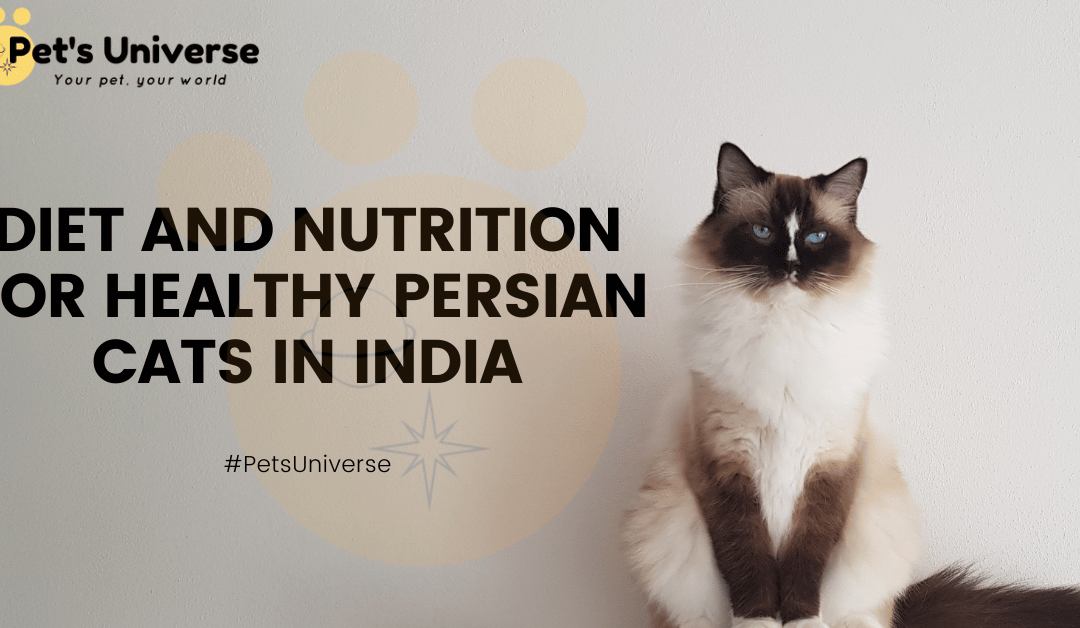Diet and Nutrition for Healthy Persian Cats in India
Jan 12, 2023 | All Posts, Cats |

Persian cats are a popular breed in India, known for their long, fluffy coats and sweet personalities. However, these cats have specific dietary and nutritional needs that must be met to ensure they stay healthy and happy.
1. Protein: Persian cats require a diet that is high in protein to support their growth and development. Look for a food that contains high-quality animal proteins like chicken, fish, or lamb.
2. Fat: Persian cats also need a diet that is high in fat to provide them with the necessary energy and to keep their coats shiny and healthy. Look for a food that contains healthy fats like fish oil or flaxseed oil.
3. Fiber: Persian cats in India need a diet that is high in fiber to promote healthy digestion and to prevent hairballs. Look for a food that contains natural fibers like pumpkin or beet pulp.
4. Carbohydrates: Persian cats do not require a high carbohydrate diet, but a small amount of carbohydrates can be beneficial for maintaining energy levels. Look for a food that contains complex carbohydrates like brown rice or barley.
5. Vitamins and Minerals: Persian cats require a diet that is rich in essential vitamins and minerals, such as vitamin A, vitamin E, and potassium. Look for a food that contains these vitamins and minerals in a balanced formula.
6. Avoiding certain ingredients: Persian cats may be sensitive to certain ingredients, such as grains, soy, and artificial preservatives. It is best to avoid these ingredients in their diet.
7. Portion control: Persian cats are prone to obesity, so it is important to control their portion sizes and monitor their weight regularly.
8. Fresh water: Persian cats need access to fresh water at all times. Make sure to change their water bowl daily and keep it clean.
9. Consult with your vet: It is always best to consult with a veterinarian before making any changes to your Persian cat’s diet. They can provide personalized recommendations based on your cat’s individual needs.
In conclusion, Persian cats require a specific diet and nutrition to maintain their health and well-being. A diet high in protein, fat, fiber, and essential vitamins and minerals is crucial for their growth and development. Avoiding certain ingredients and controlling portion sizes can also help prevent obesity. It is important to consult with a veterinarian before making any changes to your cat’s diet. With the right diet and nutrition, you can ensure that your Persian cat will stay healthy, happy and fluffy for years to come.